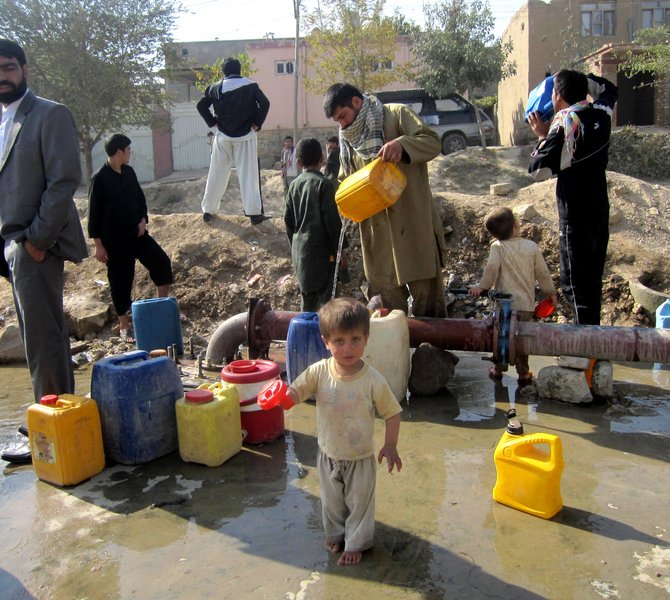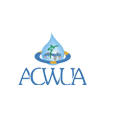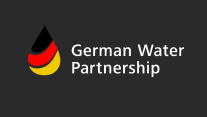Cases
Water supply in Dogh Abad (Afghanistan)
Summary
Many Afghans have no access to clean and safe drinking water in their own households. In Kabul, the Afghan capital, today only around one third of households are connected to public water supply. The situation is even worse in the Afghan provinces where only one of five households has access to water from the tab.
Situation
Project Background
In 2007, a new company, the Afghanistan Urban Water Supply and Sewerage Corporation (AUWSSC) was created in order to renew and build up water infrastructure and to provide drinking water to the Afghan population. AUWSSC is the holding company for local utilities called “Strategic Business Units” (SBU). AUWSSC’s work is based on commercial principles. The company is supported by international donors such as the the Deutsche Gesellschaft für Internationale Zusammenarbeit GmbH (GIZ), the World Bank, US AID, Agence Francaise de Développement (AFD), Japan International Cooperation Agency (JICA) and others. During the design and implementation of water supply projects AUWSSC cooperates with local communities, different ministries, contractors and costumers. In June 2013 AUWSSC started a water supply project in Dogh Abad, which is part of the 7th district of Kabul. Here, around 2500 households are without proper access to drinking water. The project’s aim is to provide fresh and clean water by constructing water pipes and pumps. The project is funded by the World Bank and is scheduled for completion in June 2014.
Stakeholders
AUWSSC is the holding company for local utilities called “Strategic Business Units” (SBU). During the design and implementation of water supply projects AUWSSC cooperates with local communities, different ministries, contractors and costumers. As a consequence, stakeholder dialogues are essential for AUWSSC’s daily business.
Approach
Phase 1: Exploring & Engaging
The project design followed the four phases of the Dialogic Change Model (DCM). In the first phase the Strategic Business Unit Kabul (SBU Kabul) analyzed the situation and the different stakeholders which are important for the project. In a next step, SBU Kabul got into a consultation process with the local community of the village, discussed the local water needs and built a container to set up the project. Several meetings between SBU’s representatives and the village’s eldest engaged the different actors in the process.
Phase 2: Building and Formalizing
In the second phase the World Bank was introduced as a donor into the project. Furthermore, the AUWSSC headquarter and particularly the technical department of AUWSSC joined the process in order to coordinate technical assents and the cooperation between the different stakeholders.
Phase 3: Implementing and Evaluation
The project is currently in Phase 3 and shall be implemented during the next months. Since World Bank Funding for the project will stop in June 2014, only few months remain for the implementation process. The Strategic Business Unit is currently facing different challenges. The unit must make sure that the local contractor will start his works as soon as possible. Moreover, energy shortages in the country hinder the running of water pumps. Thus, SBU is working closer together with the electricity department (ABDS). Finally, also the security situation is a challenge to construction works in Afghanistan.
Phase 4: Developing further, replicating or institutionalizing
in process...
Transformation
Change initiative
In January 2014 AUWSSC and KSBU members attended two Tailor Made courses on Stakeholder Dialogues and the Practitioner Session at the Collective Leadership Institute (CLI). During the course participants reviewed the project cycle and decided to set up a new working meeting with all involved staff. A strong container within Kabul SBU will be established in order to prepare the meeting, representing a return to the important principle of phase 1 on a different level (scaling-up). The main objectives are that all relevant stakeholders attend the meeting, know their respective roles and agree on a new action plan. This story illustrates how the DCM spirals in reiterative learning and is not necessarily clean cut between phases. Rather stakeholder dialogues as an approach require a return to all principles of the DCM throughout the process.
Results
Relevant stakeholders attend the meeting, know their respective roles and agree on a new action plan.








0 Comments